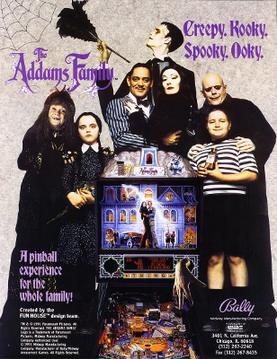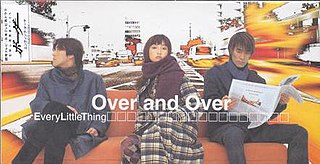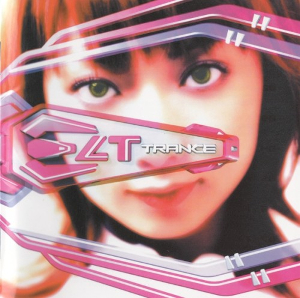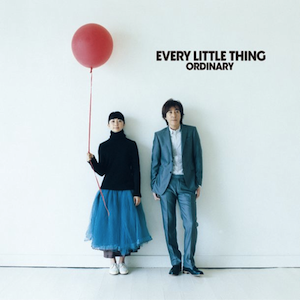
An emergency position-indicating radiobeacon (EPIRB) is a type of emergency locator beacon for commercial and recreational boats, a portable, battery-powered radio transmitter used in emergencies to locate boaters in distress and in need of immediate rescue. In the event of an emergency, such as a ship sinking or medical emergency onboard, the transmitter is activated and begins transmitting a continuous 406 MHz distress radio signal, which is used by search-and-rescue teams to quickly locate the emergency and render aid. The signal is detected by satellites operated by an international consortium of rescue services, COSPAS-SARSAT, which can detect emergency beacons anywhere on Earth transmitting on the distress frequency of 406 MHz. The satellites calculate the position or utilize the GPS coordinates of the beacon and quickly passes the information to the appropriate local first responder organization, which performs the search and rescue. As Search and Rescue approach the search areas, they use Direction Finding (DF) equipment to locate the beacon using the 121.5 MHz homing signal, or in newer EPIRBs, the AIS location signal. The basic purpose of this system is to help rescuers find survivors within the so-called "golden day" during which the majority of survivors can usually be saved. The feature distinguishing a modern EPIRB, often called GPIRB, from other types of emergency beacon is that it contains a GPS receiver and broadcasts its position, usually accurate within 100 m (330 ft), to facilitate location. Previous emergency beacons without a GPS can only be localized to within 2 km (1.2 mi) by the COSPAS satellites and relied heavily upon the 121.5 MHz homing signal to pin-point the beacons location as they arrived on scene.

Every Little Thing is a pop/soft rock duo from Japan who debuted in August 1996 with the release of their first single called "Feel My Heart". Their name is usually written in English, and only rarely in katakana. They gained massive popularity in the late 1990s and early 2000s. As of 2013, Every Little Thing has sold over 23 million copies of singles and albums throughout Japan. Their second studio album, Time to Destination, is the best-selling album of the band with over 3.5 million copies sold, and became the 10th best-selling album of all time in Japan.

Kaori Mochida is the lead singer of Japanese pop group Every Little Thing.

The Extremely Large Telescope (ELT) is an astronomical observatory under construction. When completed, it will be the world's largest optical/near-infrared extremely large telescope. Part of the European Southern Observatory (ESO) agency, it is located on top of Cerro Armazones in the Atacama Desert of northern Chile.

Proof of Life is a 2000 American action thriller film directed and produced by Taylor Hackford. The title refers to a phrase commonly used to indicate proof that a kidnap victim is still alive. The film's screenplay was written by Tony Gilroy, who also was an executive producer, and was inspired by William Prochnau's Vanity Fair magazine article "Adventures in the Ransom Trade", and Thomas Hargrove's book Long March to Freedom, in which Hargrove recounts how his release was negotiated by Thomas Clayton, who went on to be the founder of kidnap-for-ransom consultancy Clayton Consultants, Inc.

The Addams Family is a pinball machine released in March 1992. It was designed by Pat Lawlor and Larry DeMar and released by Midway. It was based on the 1991 film of the same name, and features custom speech by the stars of the film, Anjelica Huston and Raul Julia. It is the best-selling solid state pinball machine of all time with 20,270 units sold.

"Over and Over" is a song by the Japanese J-pop group Every Little Thing, released as the group's eleventh single on January 27, 1999. It was used for the drama Border: Hanzaishinri Sōsa File.

"Fragile", released with a B-side track "Jirenma", is a single by the J-pop group Every Little Thing, released as their eighteenth single on January 1, 2001. It was their fourth single to top the Oricon chart.

Many Pieces is the fifth album of the Japanese pop rock group Every Little Thing (ELT), released on March 19, 2003. Many Pieces showed a drastic change in ELT's music, because of the departure of synthesizers and the change in Mochida's vocals.
On Microsoft Windows, a special folder is a folder that is presented to the user through an interface as an abstract concept instead of an absolute folder path. Special folders make it possible for any application to ask the operating system where an appropriate location for certain kinds of files can be found; independently of which version or user language of Windows is being used.

Crispy Park is the seventh album of the Japanese pop rock group Every Little Thing, released on August 9, 2006.

"Bokura no Machi de" is the third overall single by the Japanese boy band KAT-TUN, and the second from their second studio album, Cartoon KAT-TUN II You. The first ballad to be released as a single, it is also the first commercially released song to not feature Jin Akanishi who took a sabbatical from the group in October 2006 to study in Los Angeles. The single was released in three editions; a regular edition with instrumental versions of the title track and a b-side, a first press limited edition with a bonus track and its instrumental version and a limited edition with the single's music video.

Cyber Trance presents ELT Trance is the first trance music remix album by Japanese duo Every Little Thing. It was released simultaneously with the house remixes compilation The Remixes III: Mix Rice Plantation on February 27, 2002, by Avex Trance. The album contains remixes of tracks from their first four studio albums from Everlasting to 4 Force.

Ordinary is the tenth studio album by Japanese music duo Every Little Thing. It was released on September 21, 2011, by Avex Trax.

Fun-Fare is the eleventh studio album by Japanese music duo Every Little Thing. It was released on February 19, 2014, by Avex Trax.

The Remixes III: Mix Rice Plantation is the third remix album by Japanese duo Every Little Thing. It was released simultaneously with house remixes compilation Cyber Trance presents ELT Trance on February 27, 2002, by Avex Trance. The album contains remixes of tracks from their single "Forever Yours" to "Jump". As their third remix album, this one diverged considerably much from its predecessors, distancing from dance house remixes similar to their previous remixes and focusing on experimental house music, which includes elements of bossa nova and downtempo music.

The discography of Every Little Thing, a J-pop duo formed in 1996 by Mitsuru Igarashi, Kaori Mochida and Ichiro Ito, consists of eleven studio albums, six compilation albums, five remix albums, and numerous singles and videos, many of which were commercially successful. The band debuted with their single "Feel My Heart" on August 7, 1996, which peaked at number twenty-four on the Japanese Oricon charts. Their first number one single was "For The Moment", released on June 4, 1997. Their most successful year was 1998, in which they released their 8th single "Time Goes By" which topped the charts and sold more than a million copies. Their second studio album Time to Destination released that year sold more than 3.5 million copies in Japan, their best-selling album to date. Number one singles of the band include "Forever Yours" (1998), "Fragile" (2001), Untitled 4 Ballads (2002) and "Koibumi" (2004).
A prop-word is a word with little or no semantic content used where grammar dictates a certain sentence member, e.g., to provide a "support" on which to hang a modifier. The word most commonly considered as a prop-word in English is one.

"Aquamarine no Mama de Ite" is the second single by Carlos Toshiki & Omega Tribe released by VAP on August 10, 1988. The seventh single during vocalist Carlos Toshiki's era of Omega Tribe, it is considered one of Toshiki's signature songs alongside "Kimi ha 1000%" and has been covered by multiple Japanese artists. The single was the theme song for the Fuji Television drama Dakishimetai! and peaked at 3rd place on the Oricon Singles Chart.
















